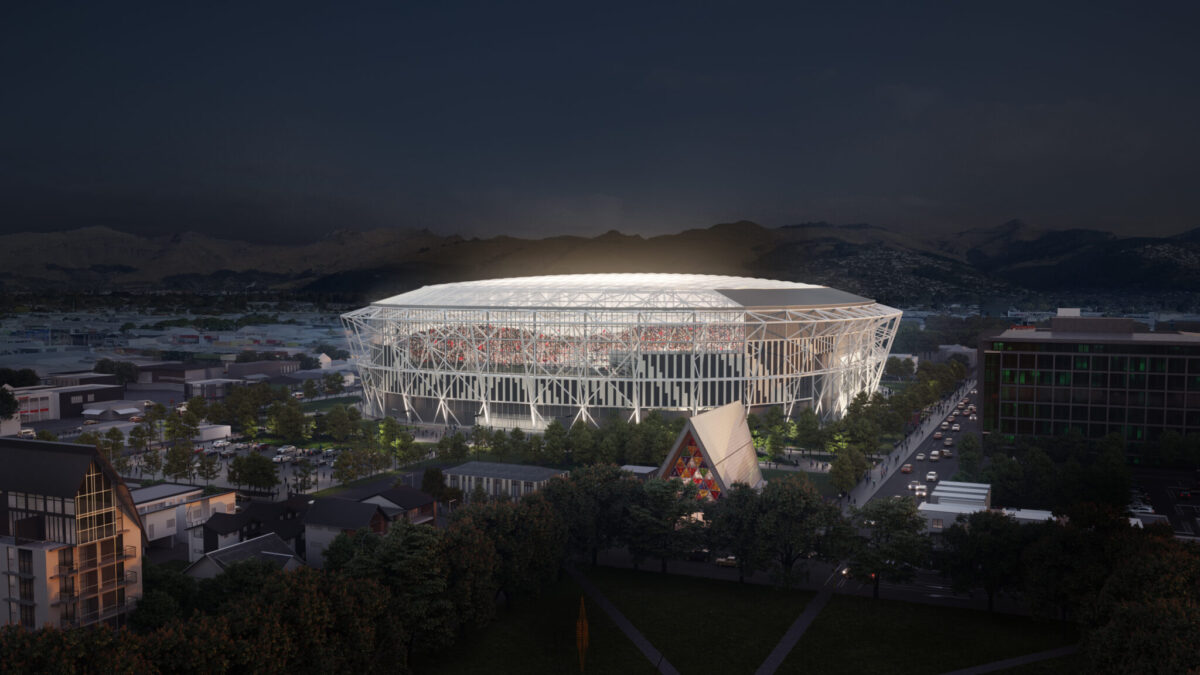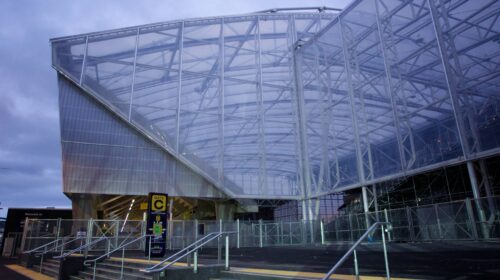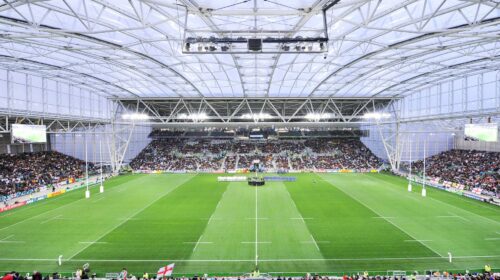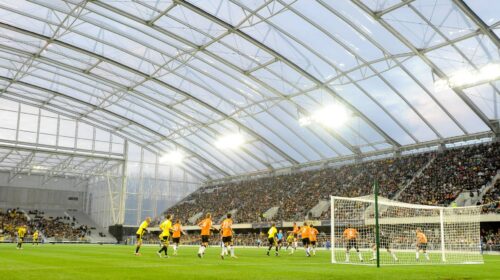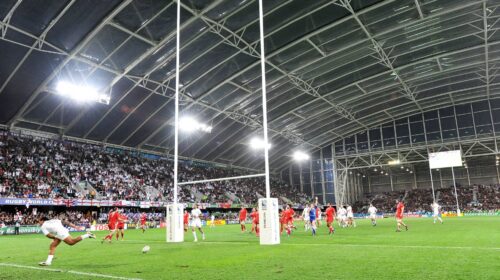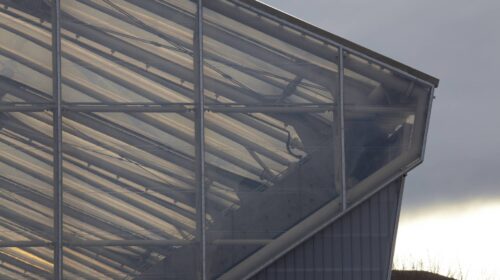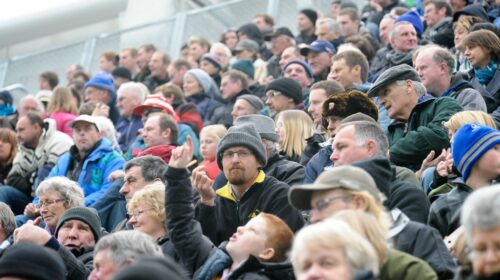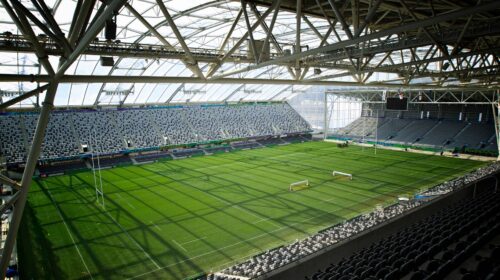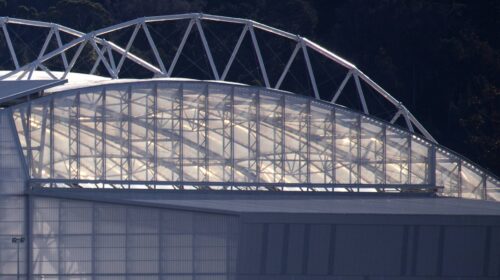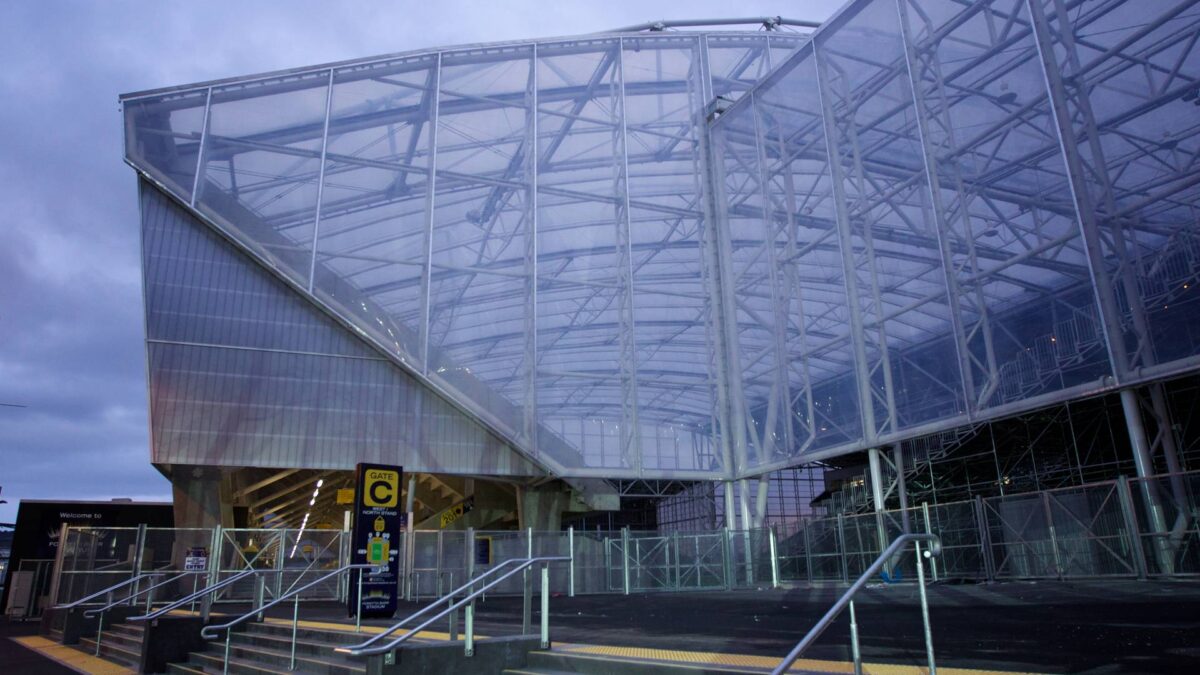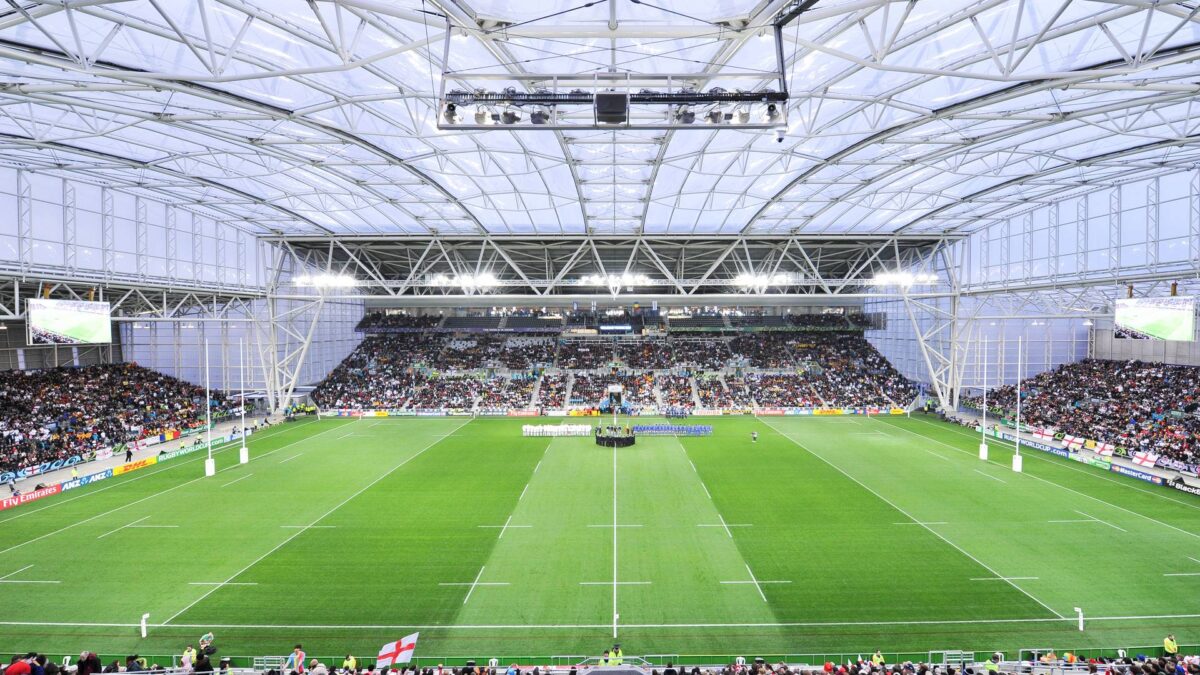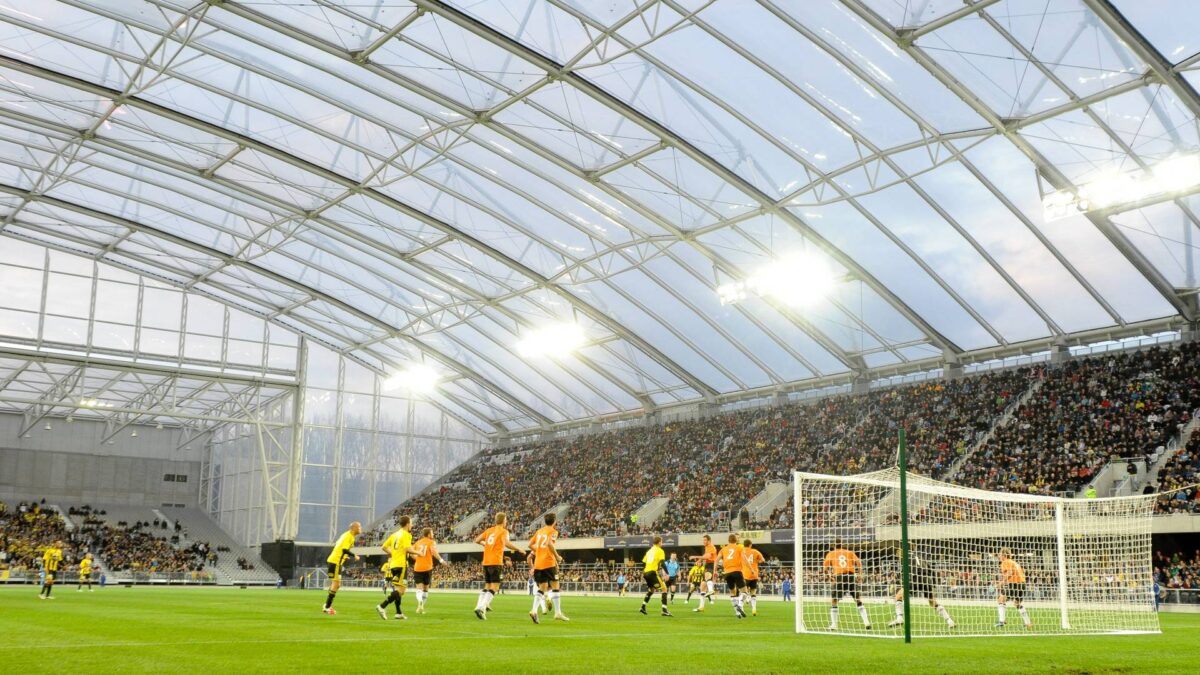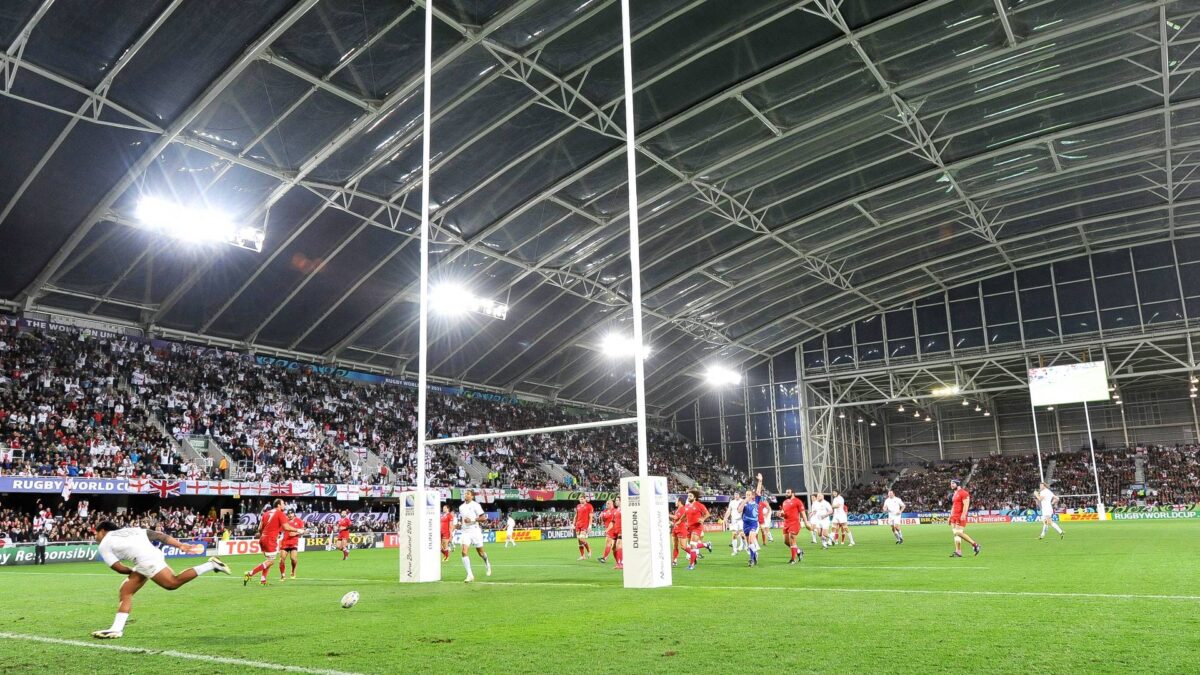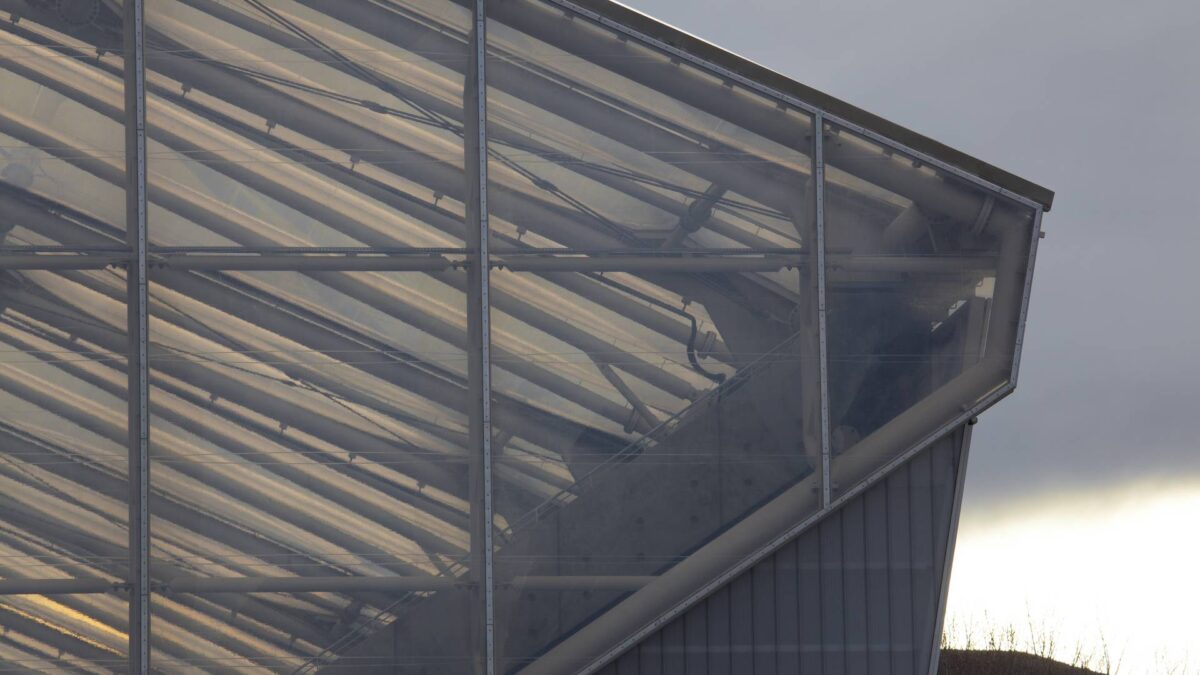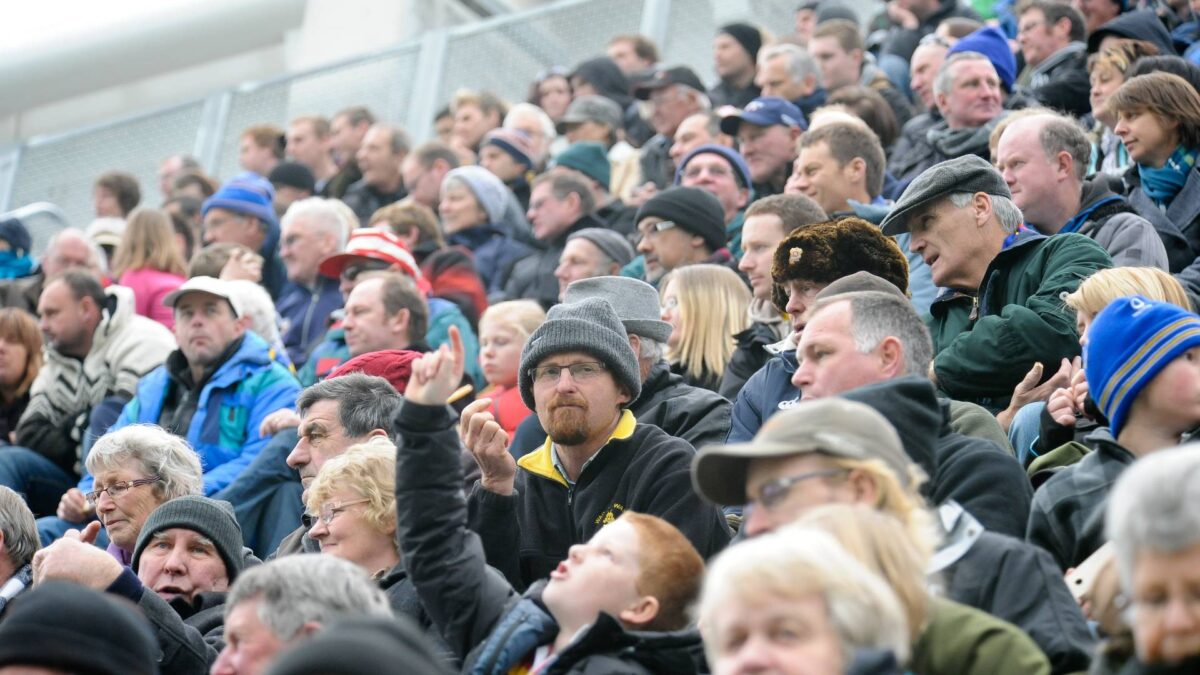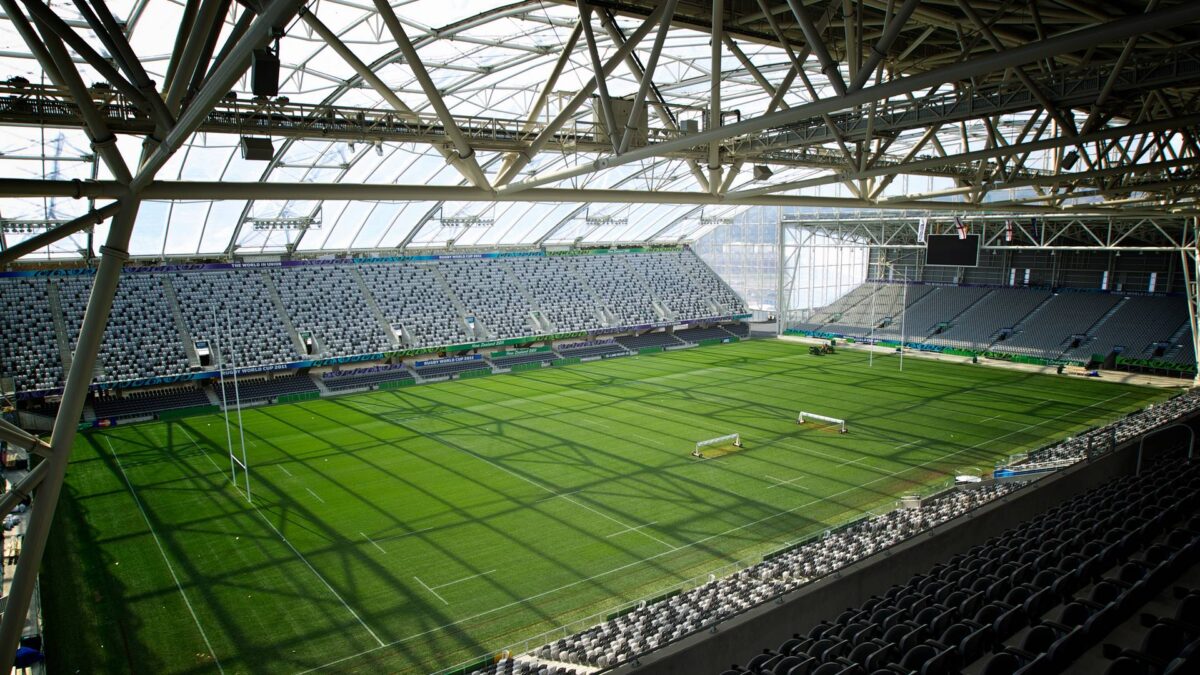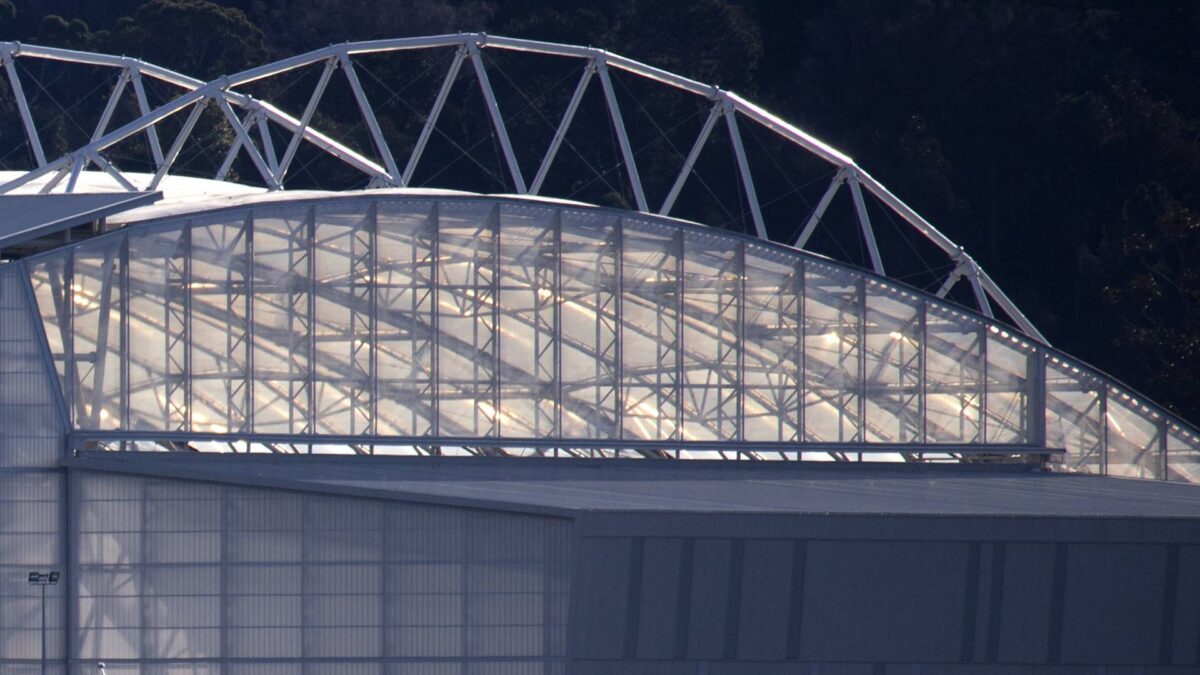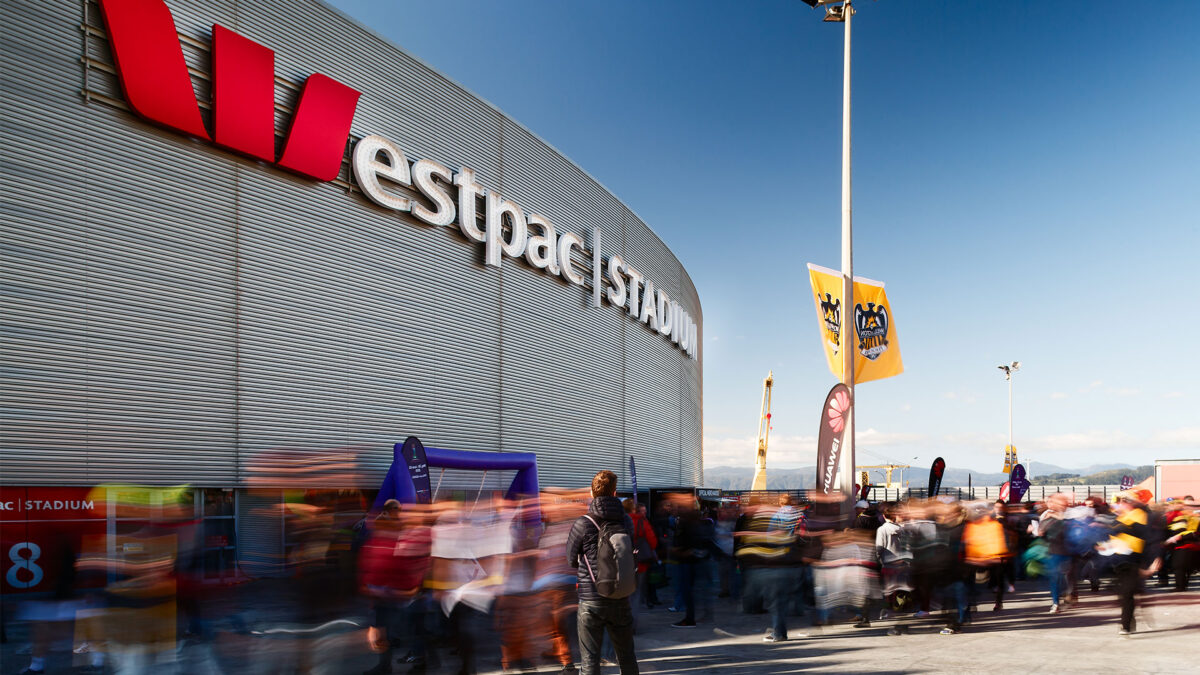
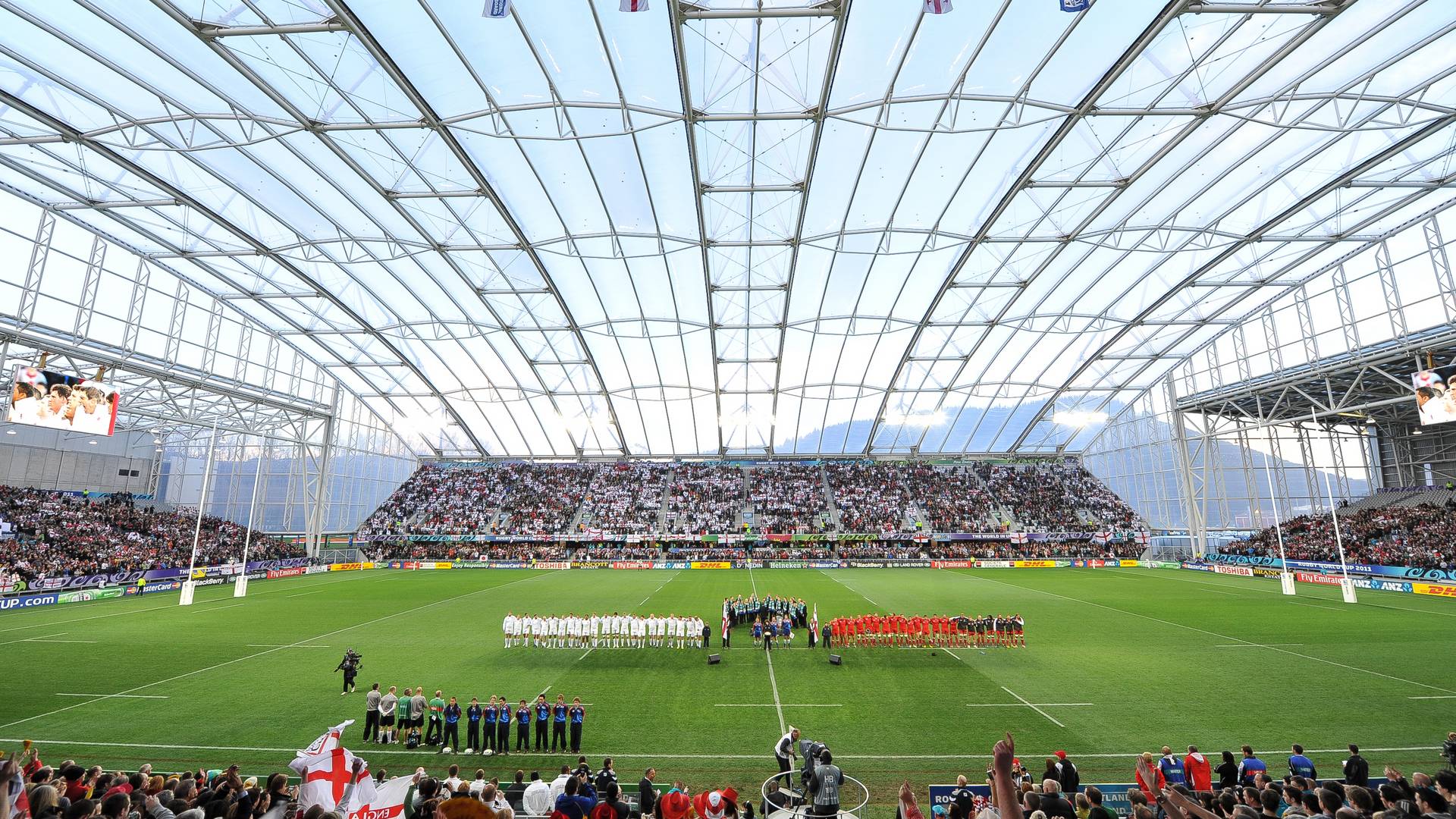
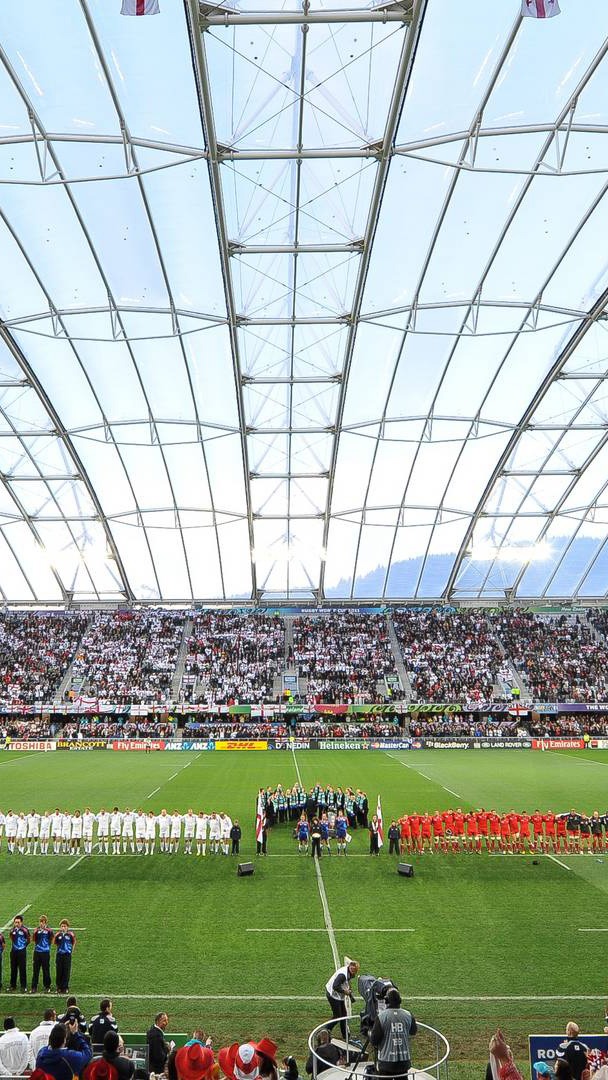
Forsyth Barr Stadium
Architecture
-
Client
Carisbrook Stadium Trust
-
Total Capacity
30,000
-
Disciplines
-
Collections
"Comments from All Blacks players saying it is the best stadium in the world to play in are pretty high marks."
Terry Davies
CEO, Dunedin Venues
An all-weather venue was the obvious choice for the stadium, but given the modest size of the city (119,000 people), it was difficult to justify the cost of an enclosed venue for sporting matches only. It was eventually agreed that if the stadium was enclosed it should be used for a variety of purposes, including sporting, cultural, entertainment and educational uses.
The design team was then faced with the challenge of creating a cost-effective stadium with a natural grass field growing under a fully fixed roof. Populous’ broad experience with covered venues around the world brought valuable insights and for two years the design and research team studied different materials for roofing the stadium and their effect on optimal grass growth. The final solution was ETFE (ethylene tetrafluoroethylene) — a transparent polymer originally developed for the space industry. The research also clarified that the stadium design would be driven primarily by the requirement to maximize sun strike levels and natural ventilation. The ETFE covers the roof and part of the facades, while the stands on the northern end of the stadium are lower to allow maximum sunlight onto the field. The end facades are raised 5 meters above ground to allow fresh air across the field.
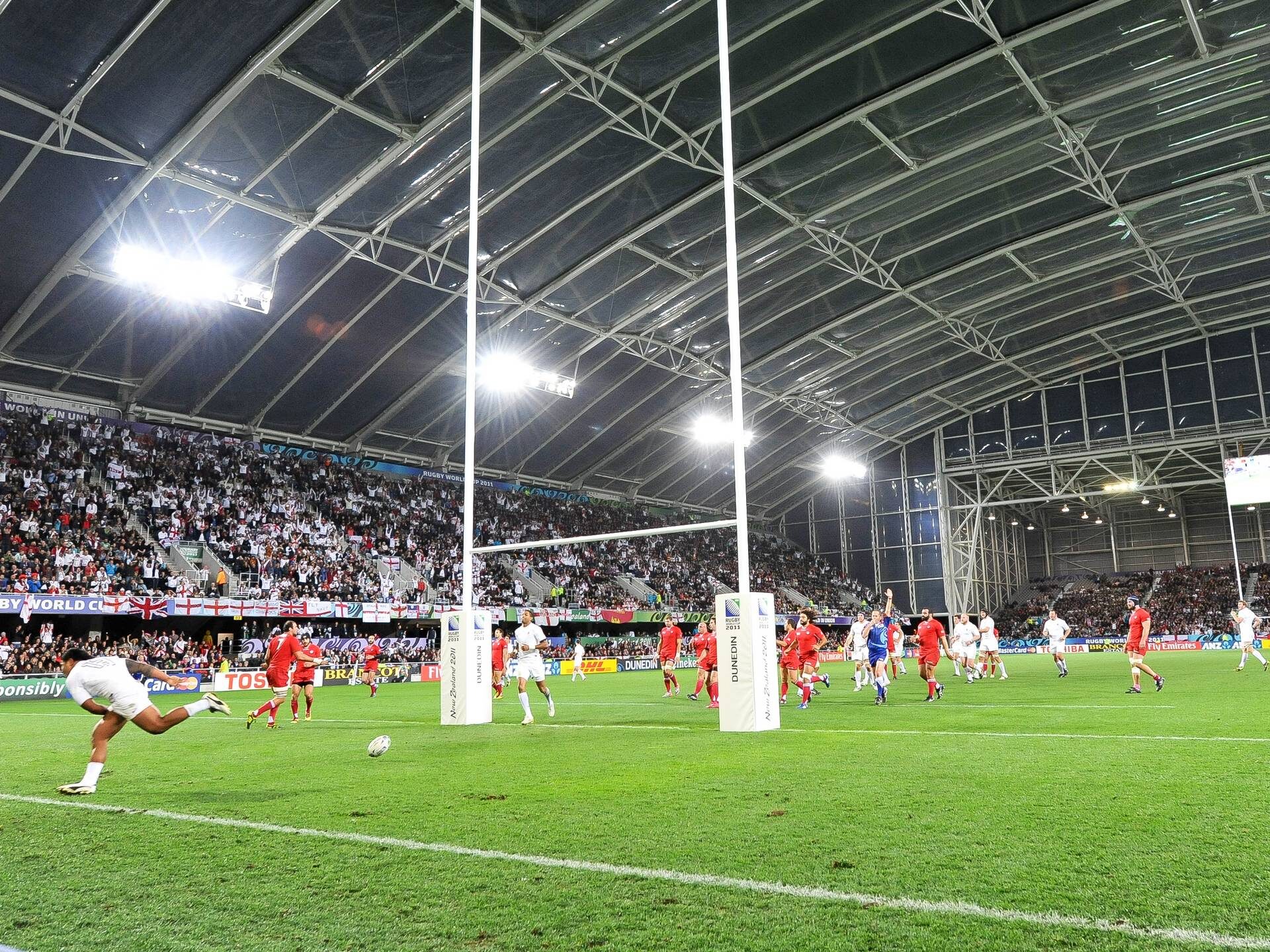
Forsyth Barr Stadium is the world’s only permanently covered stadium to boast a natural turf playing field. Whilst ETFE is not a new product, this is the first time its UV translucent properties have been put to use in a stadium, creating the largest ETFE covered structure in the Southern Hemisphere. Dunedin’s cold and wet climate makes the roof an essential feature of the stadium to encourage crowds to attend live events.
The stadium is also New Zealand’s largest rectangular indoor event venue. It has 20,000 permanent seats, 11,000 temporary seats and a 37-meter internal roof height, which — when combined with the angled seating field — means spectators are incredibly close to the action. Construction was completed within both a tight timeframe and budget.
Zoom
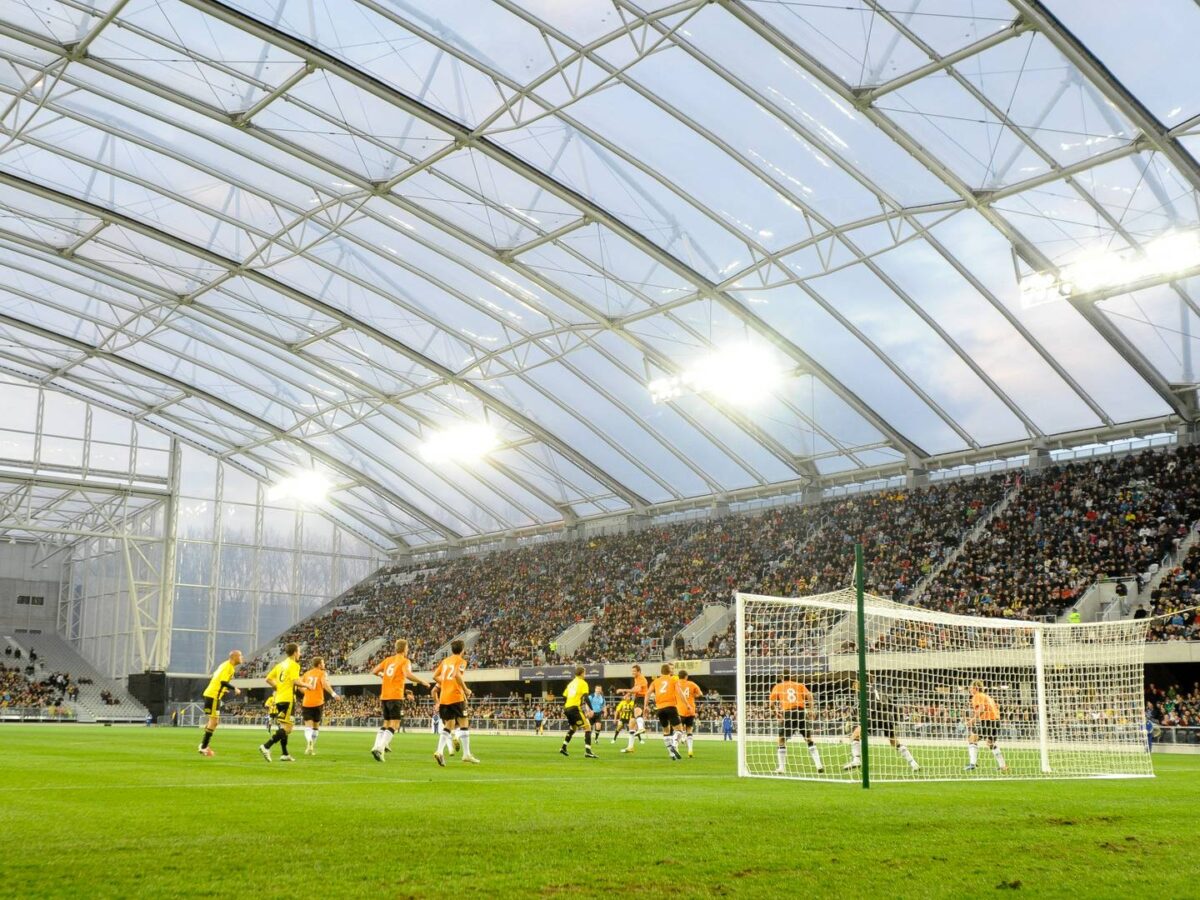
Zoom
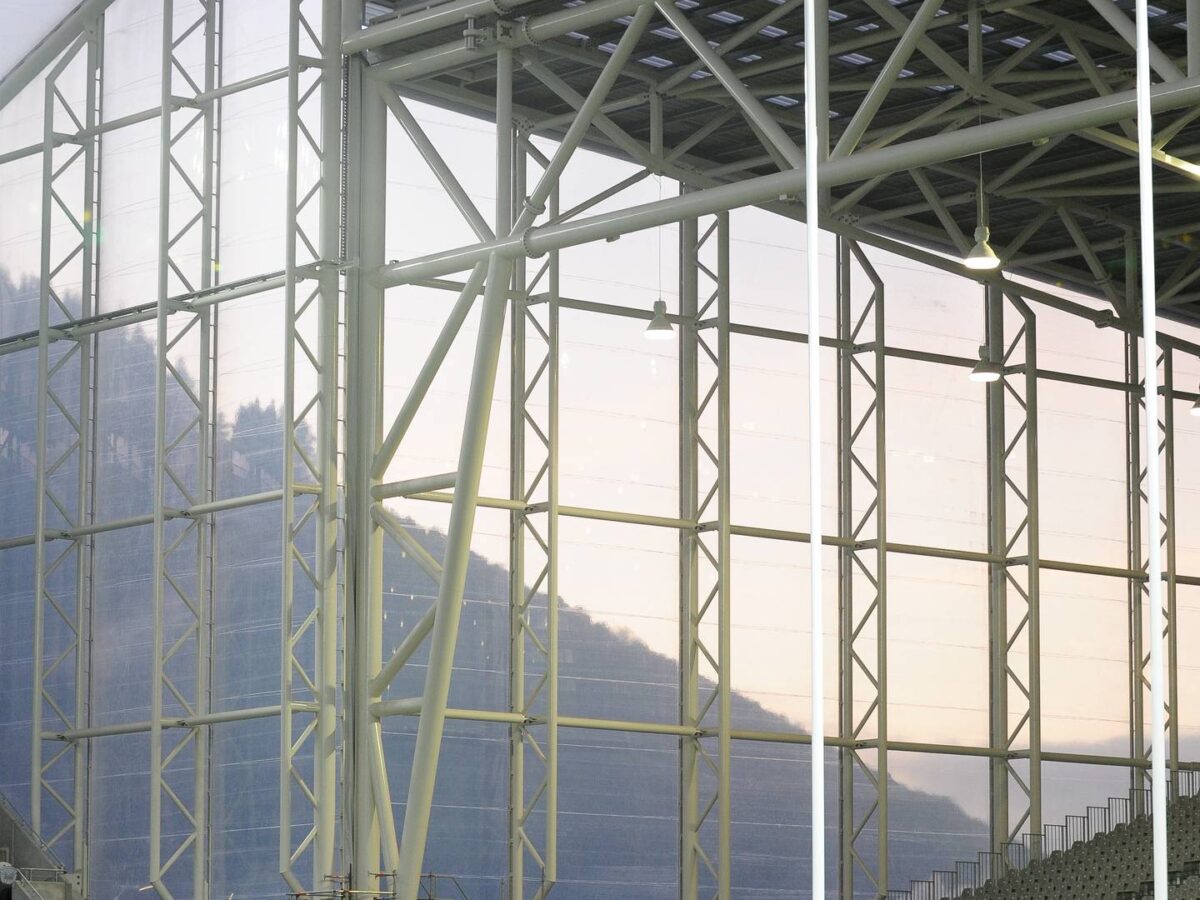
Zoom
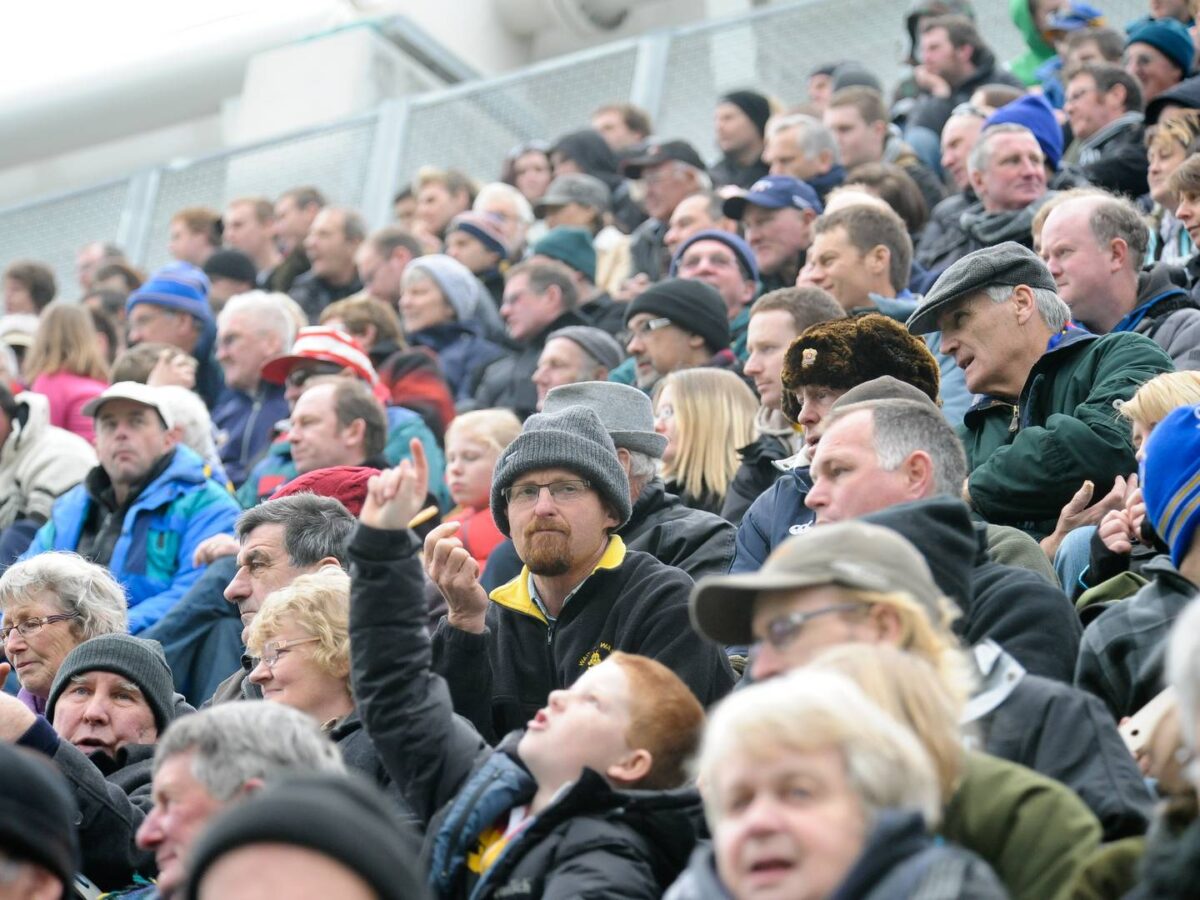
During the research and early design stages, an ETFE test rig was built on site to monitor grass growth both under the rig and outside it. Toward the end of the testing phase, it was discovered that the grass under the rig was stronger and healthier than the grass surrounding it, withstanding several high impact tests by local rugby.
The success of the grass growth due to the innovative testing process and use of ETFE has set a new benchmark for North American and Northern European venues for the feasibility of grass growth under an enclosed structure.
In September 2011, the stadium played host to a number of pool matches during the NZ Rugby World Cup and received great critical acclaim for the condition of the field and the levels of spectator comfort within an enclosed venue. In November 2011, Elton John was the first entertainer to perform at Forsyth Barr Stadium which has now staged international and domestic rugby matches, major music concerts, movie screenings and Red Bull snowboarding competitions.
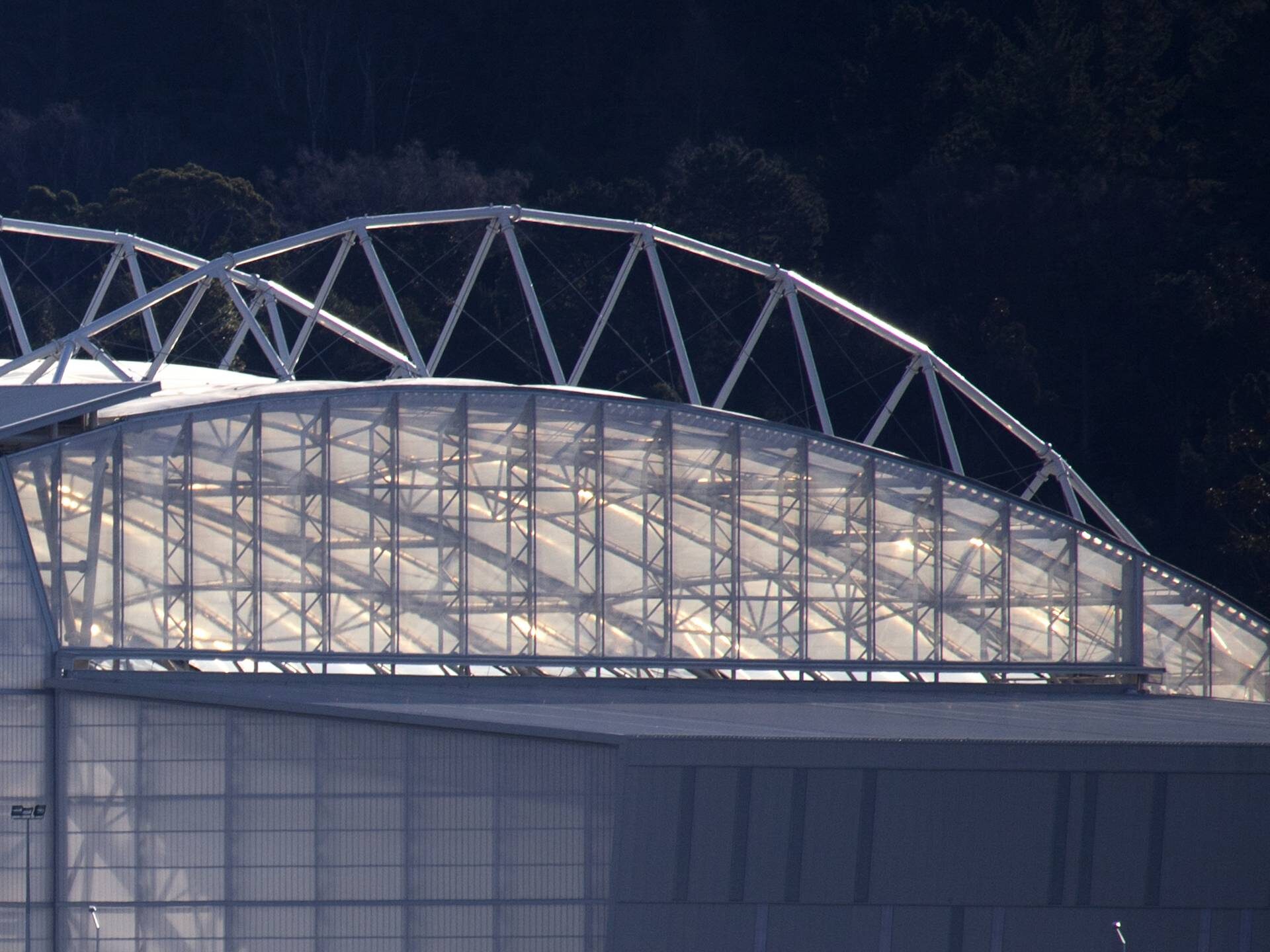
-
2011
- Public Architecture, New Zealand Institute of Architects Southern Region
- Finalist, Venue of the Year, Stadium Business Awards
Explore More Projects
Explore some of our best work around the world
Discover how we transform ideas into reality, fostering connections that bridge cultures and celebrate the beauty of human interaction.
↳ StartRelated Content
Perspectives
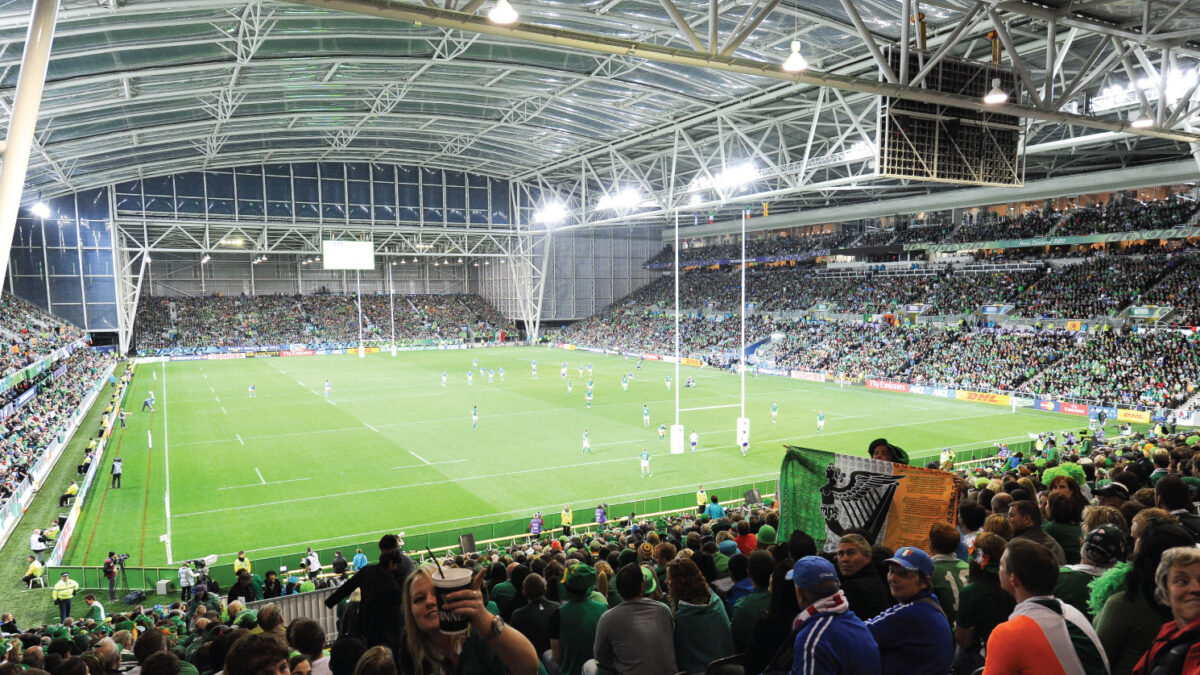
Gallery
( 8 )
Forsyth Barr Stadium
( — 8 )
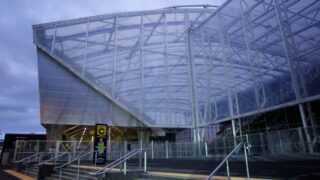
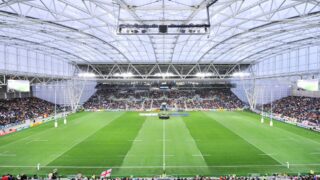
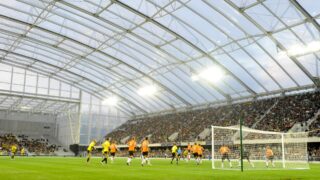
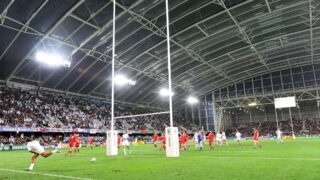
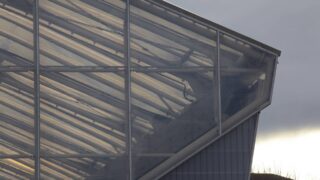
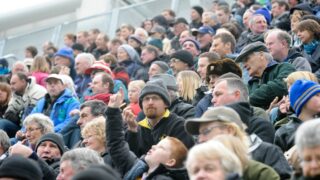
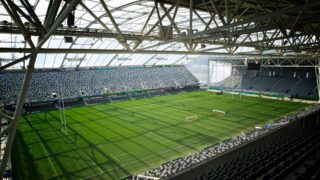
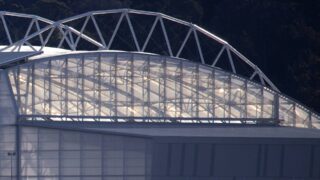
Lorem ipsum dolor sit amet consectetur, adipisicing elit. Non facere corporis et expedita sit nam amet aut necessitatibus at dolore enim quis impedit eius libero, harum tempore laboriosam dolor cumque.
Lorem, ipsum dolor sit amet consectetur adipisicing elit. Illo temporibus vero veritatis eveniet, placeat dolorem sunt at provident tenetur omnis, dicta exercitationem. Expedita quod aspernatur molestias eum? Totam, incidunt quos.
